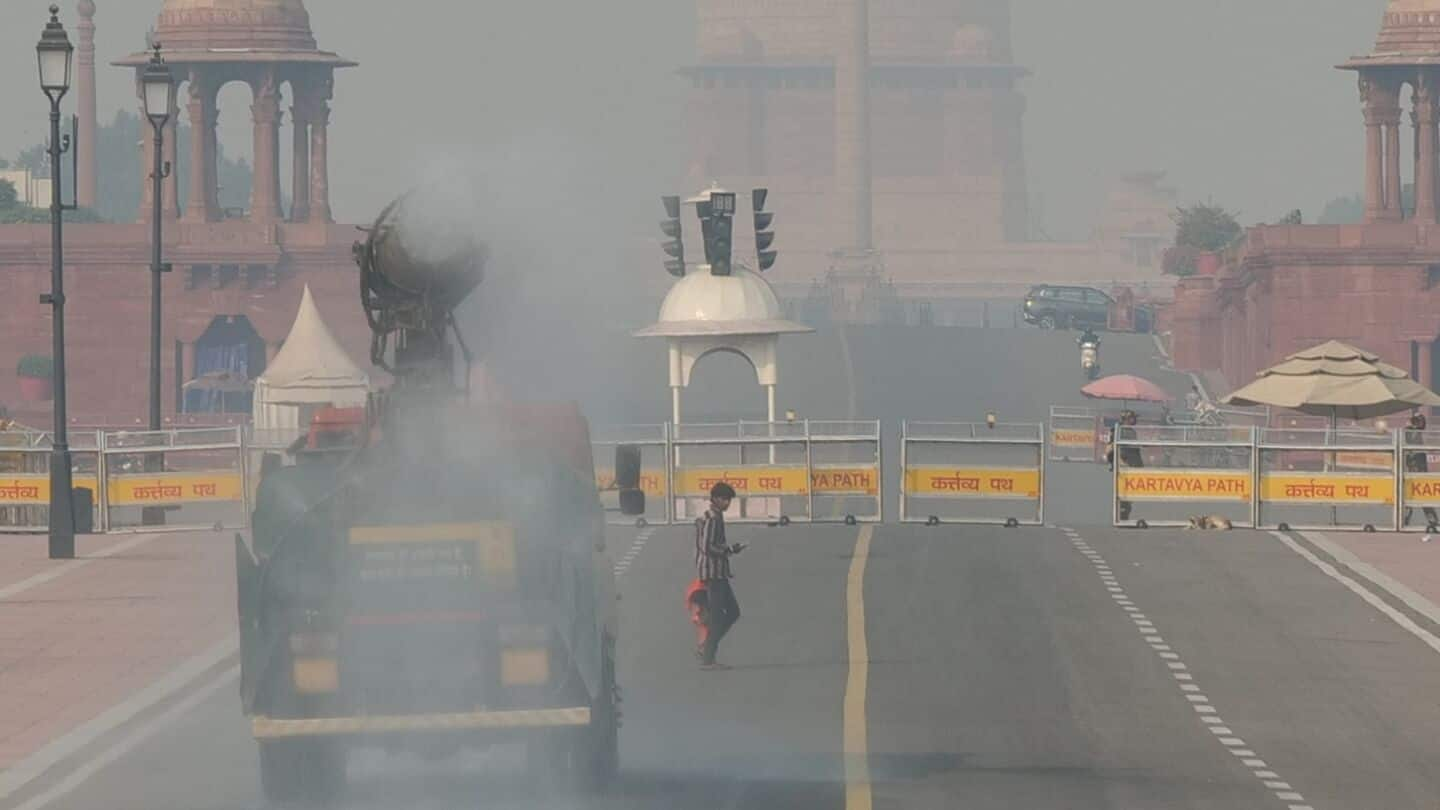
PMO flags polluting vehicles in Delhi; pushes for EV expansion
What's the story
The Prime Minister's Office (PMO) has directed all states and union territories to speed up the transition to electric vehicles (EVs) and improve charging infrastructure, the Indian Express reported. The decision was taken during a high-level meeting on Tuesday, chaired by the Principal Secretary to the Prime Minister. The meeting was attended by secretaries from eight departments and chief secretaries of five states: Delhi, Rajasthan, Haryana, Punjab, and Uttar Pradesh.
Pollution crisis
Delhi's vehicle density and pollution levels
At the meeting, the principal secretary expressed concerns that the capital city holds more than half of all vehicles in the entire National Capital Region and that 37% of vehicles in Delhi-NCR still belong to the outdated BS I to BS III emission norms. The focus on transportation comes amid rising pollution levels in Delhi, where the average air quality remained "very poor" for the second week.
Adoption challenges
EV adoption and enforcement measures discussed
Data reveals that only 4,419 electric two-wheelers were registered in October in Delhi, taking the total for this year to 31,447. In contrast, petrol-run two-wheelers saw over double the registrations at 78,114 in October alone. In this context, one of the decisions made during the meeting was to review and amend EV policies to speed the transition across two- and three-wheelers, cars, buses, and commercial vehicles, with clear timelines and implementation mechanisms.
Pollution sources
Transport sector's contribution to air pollution
States were also instructed to promptly notify cab and bike aggregator policies and create a unified monitoring platform, according to the Indian Express article. The Ministry of Road Transport and Highways (MoRTH) has been instructed to expedite a scientific study on pollution from vehicles that run on fossil fuel. Official data shows average PM10 levels in the capital region were around 295 ug/m3 between October 15 and November 25, while PM2.5 levels were at 171 ug/m3.
Emission sources
Farm fire incidents decline
The World Health Organization recommends safe standards of PM2.5 (24 hours) not exceeding 15 ug/m3 and PM10 not exceeding 45 ug/m3. The transport sector has been a major contributor to air pollution this season, accounting for 14-20% between November 1 and November 22 In comparison, farm fire incidents have declined this season, with 27,720 cases detected in Punjab, Haryana, Uttar Pradesh, Rajasthan, and Madhya Pradesh. This is a five-year low compared to previous years.